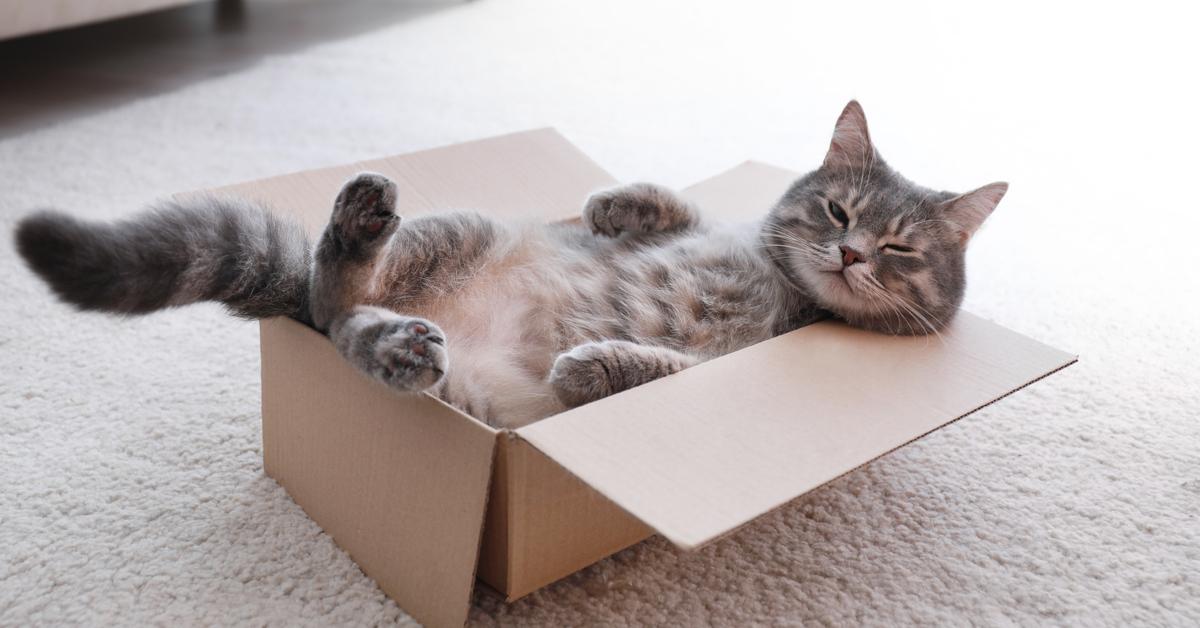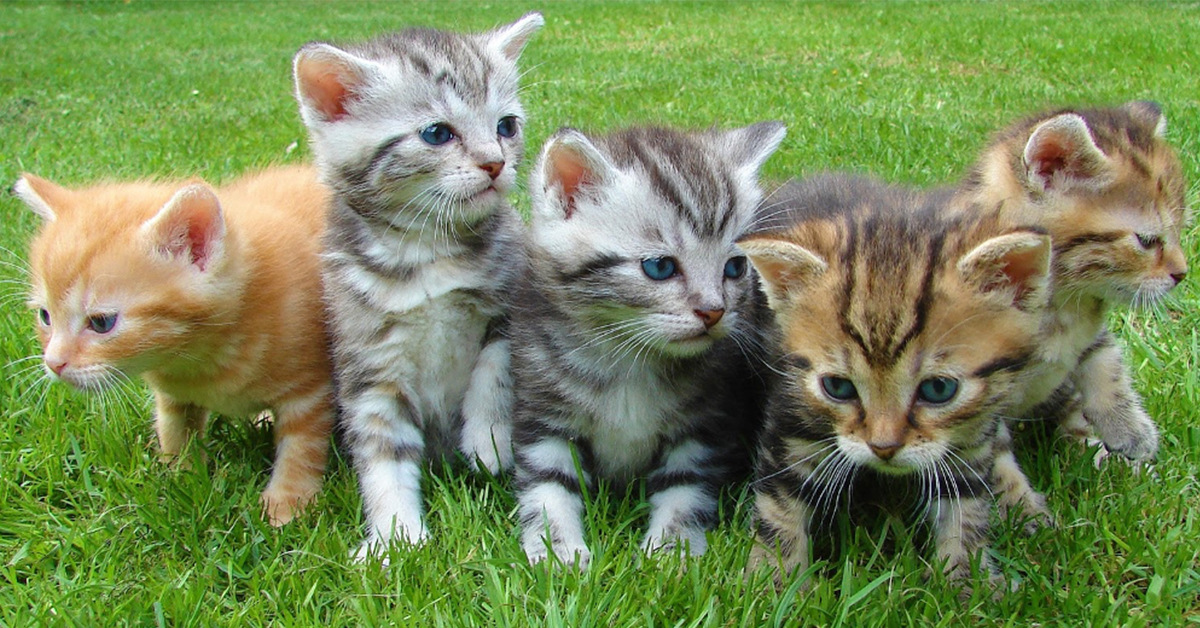If you are considering getting a pet cat for the first time, you might find yourself asking the question, “Why do cats love boxes, or is that just an urban legend?”
Once you have brought your new cat home, you will quickly learn that there is no question about it: they definitely love boxes.
When it comes to feline friends, boxes are their jam. Litter boxes, empty boxes, laundry baskets, and even imaginary boxes taped on the ground. They’re all irresistibly alluring for these tiny lions that live in your home.
Kitties love to pounce in them, sit in them, occasionally chew on the corners, and claim all of these spaces as their own personal lounging area. (Be wary if you tend to leave clothes in the basket for a few days instead of folding them right away, they just might end up covered in cat hair and need to be washed again!)
With ample funny cat videos of them sitting inside of a square taped on the ground or pouncing into an oversized Amazon box, there can be no doubt that cats love boxes.
So, perhaps a more interesting question to ask is why cats love them so much? Let’s demystify this common cat behavior.
Why Do Cats Love Boxes?

In addition to a lot of evidence on the internet of cats and boxes, there have also been some official studies investigating this intriguing animal behavior.
A few years ago, researchers at the University of Utrecht decided to investigate the possible psychology behind cats’ love for boxes.
Working with a Dutch shelter for stray animals, they performed an experiment with some of the new shelter cats who had just been brought into the animal shelter.
In the study, 10 cats were given a cardboard box to help them as they become acclimated into the new space, while nine others in the control group were not given boxes.
The hypothesis was that if sitting in boxes provides a sense of security for cats, then the group that was given boxes should acclimate easily to their new environment than the control group.
During a 14-day period, the cats in both groups were evaluated using the Kessler and Turner Cat Stress Score to determine the stress and emotional level of each cat.
Study Results

The results were statistically significant. By the end of the 14 days, all 19 cats had settled in and become more comfortable, but the group with boxes adapted more quickly than the control group.
The group given boxes were all doing very well with acclimating to shelter life just three days into the study, while the control group showed a high level of variance and many cats took longer to adjust.
While some cats naturally adapted more quickly than others, there is no doubt that the boxes helped to speed the process along.
A cat who is likely to settle in just fine will do so more quickly with the help of a simple box, and a cat who may struggle with the adjustment can greatly benefit from this source of comfort.
The study concluded that providing these safe zones helped to reduce stress levels and made it easier to become comfortable in the new environment.
These small spaces make for a great hideout, and many animals (humans included) are naturally comforted by confined spaces. Overall, the researchers found what they expected to find and their theories were confirmed.
In addition to psychological comfort, there is possibly a physiological benefit as well. That these small enclosed spaces act as great insulators and help them to regulate body temperature. By easily keeping in more body heat, the cats are comfortable and content in their boxes.
Make Your Cat Happy: Give Them a Cardboard Box

Overall, the study confirmed what many cat owners have already experienced firsthand and provided some psychological insight as to the possible motivation behind the somewhat peculiar behavior.
We now have concrete evidence that just giving them a small box can provide a lot of enrichment to your tiny lion’s life! Offering a sense of security and comfort, simple boxes can come in handy during transitions or other stressful times in a cat’s life.
Especially when bringing your new cat home to a new environment, your cat may look for a hiding spot immediately. As a new cat owner, setting up their space is key.
Putting a nice cardboard box or a cat carrier next to their litter box will help them to determine their space and provide hiding places where you can predictably find them (saving you the hassle of scouring the house for more tricky spaces they might find).
While all cats love boxes in general, it is good to take some time to get to know your cat’s individual preferences for their boxes. You may or may not choose to trim the flaps off of the edges or cut out a shape that makes it easy for them to climb in and out without pouncing.
Some cats will squeeze themselves into ridiculously tiny boxes at times, but they might prefer something bigger for their day-to-day use.
Typically, the key is to provide a size that is snug around the edge for them. A box that is too big doesn’t always provide the same level of comfort without a physical connection to the walls of the box.
Box-Like Enclaves for Your Cat

Fold Away Tunnel and Cat Scratcher, Multi
The Fold Away Scratching Tunnel by Catstages is the ultimate feline hide-a-way. This durable, foldable tunnel has a soft, comfortable floor for superior cat naps and is made of recycled corrugated material that’s great for scratching. The contrast in textures makes this hiding spot all the more exciting for cats who prefer solo playtime, while the scratchable corrugate keeps cats nails trimmed and healthy…
Conclusion: All Cat Love Boxes
Interestingly enough, it appears that the affinity for cardboard boxes that we see every day in domestic cats is just as strong in big cats as well.
Tigers and lions have been known to enjoy lounging in boxes and other confined spaces when given the chance, strengthening the idea that sitting in boxes fulfills some evolutionary need for security in cats both big and small.
Cats will be cats no matter how big they are, but perhaps the truth is that lions will be lions no matter how tiny they are.
 Chewy
Chewy Amazon
Amazon
